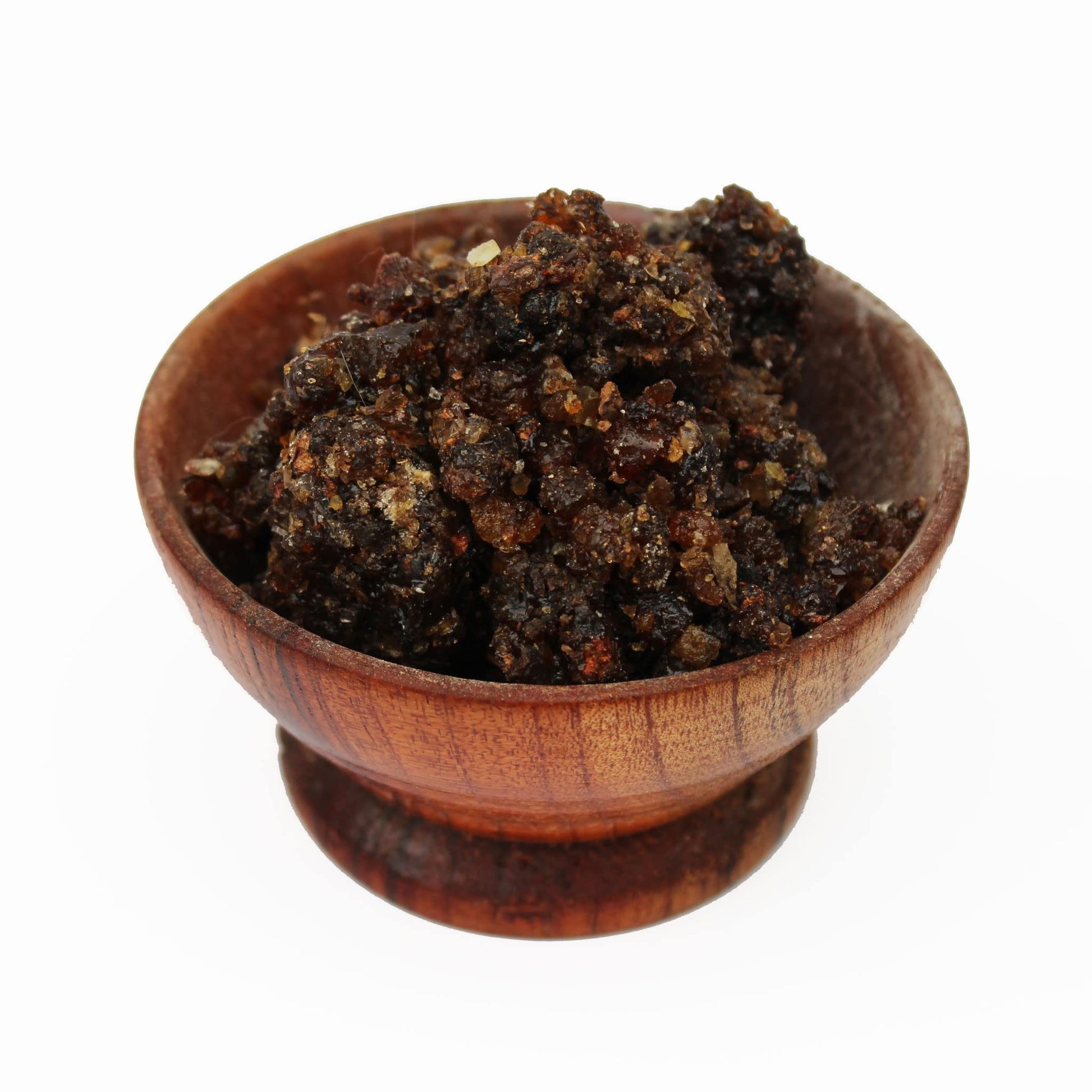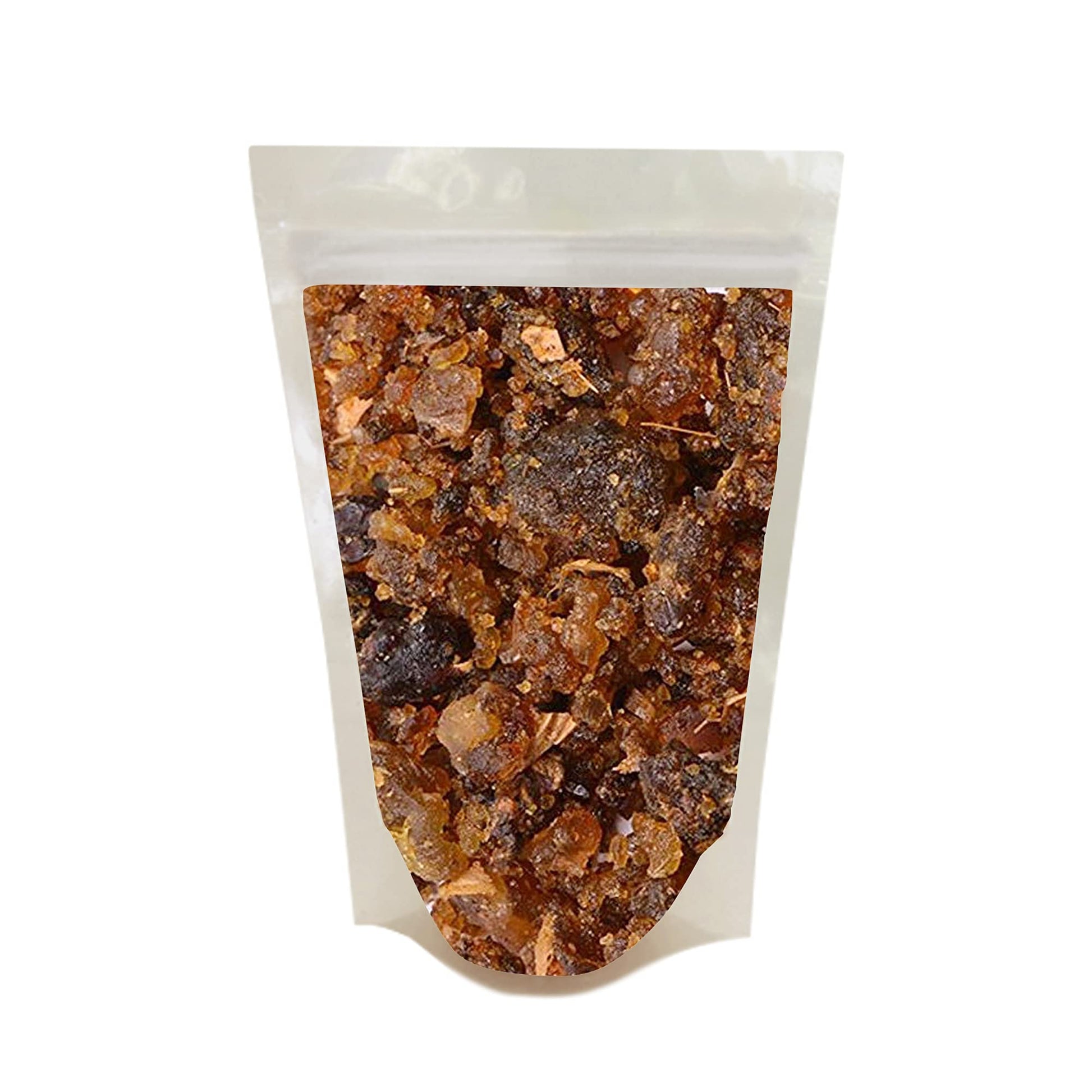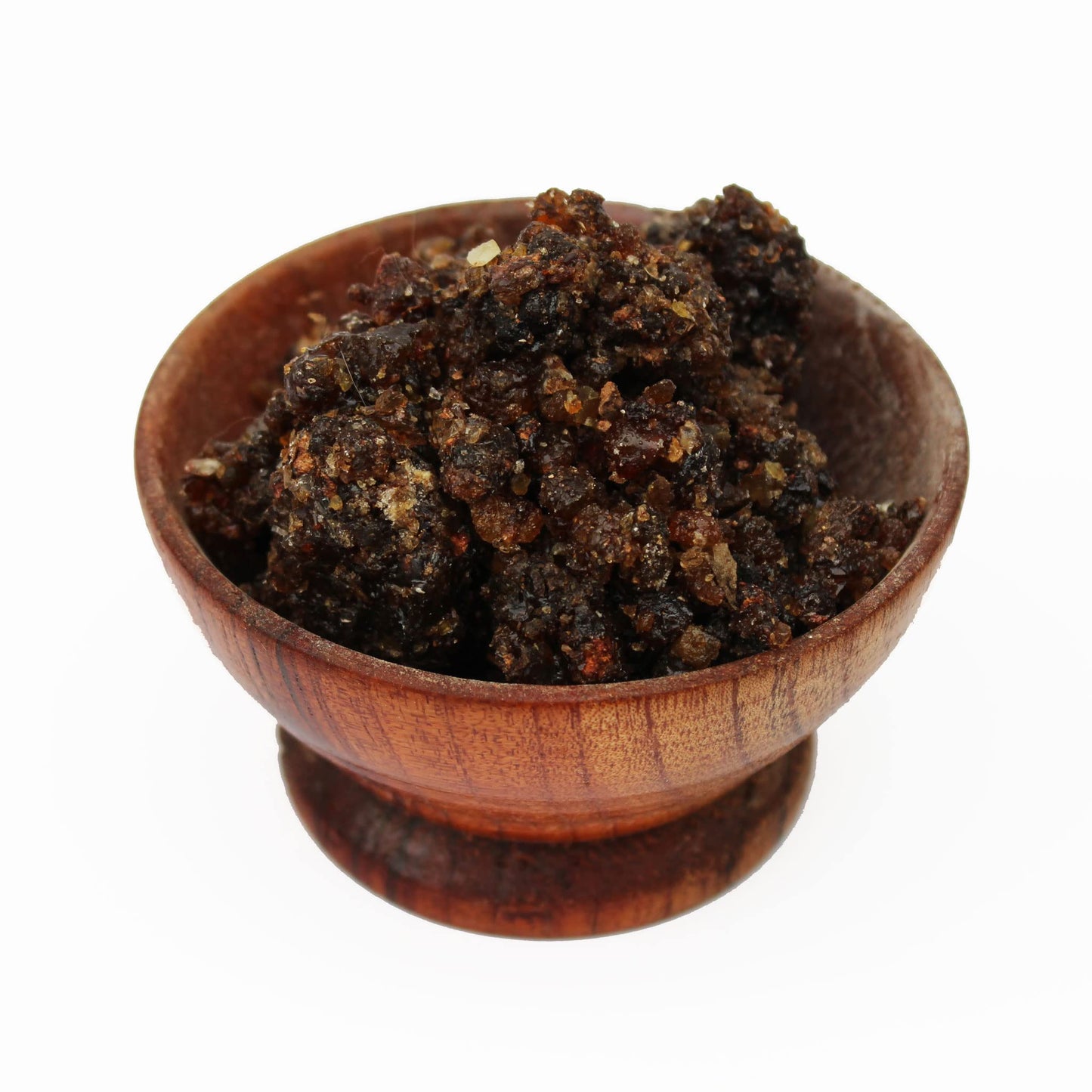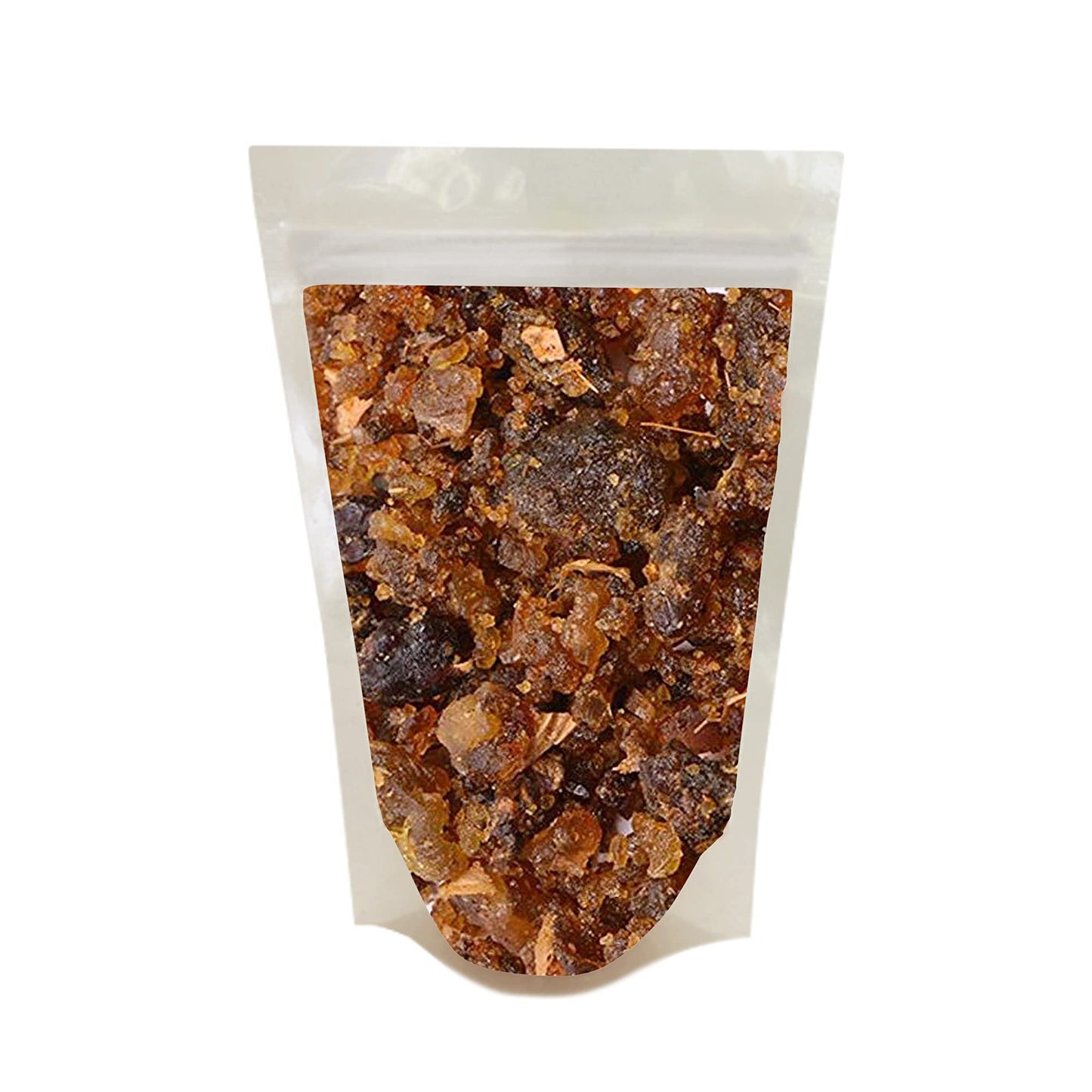Good Food Bar
Pure Green Guggul Wood for Pooja
Pure Green Guggul Wood for Pooja
Regular price
Rs. 199.00
Regular price
Rs. 299.00
Sale price
Rs. 199.00
Unit price
per
Couldn't load pickup availability
Guggul, also spelled as "guggal" or "gum guggul," is a resin derived from the sap of the Commiphora wightii tree, which is native to India. It holds significance in Hindu religious and traditional practices and is often used in Poojas (religious ceremonies) and Ayurvedic rituals for various purposes. Here's how guggul is typically used in Poojas:
1. **Cleansing and Purification:** Guggul is believed to have purifying properties. It is often burned as incense during Poojas to cleanse the environment and purify the space before the ritual. The smoke from burning guggul is thought to ward off negative energies and create a sacred atmosphere.
2. **Offerings:** In some Hindu rituals and ceremonies, guggul may be offered to deities as a sacred substance. It is considered a symbol of devotion and is presented as an offering to seek blessings and divine favor.
3. **Aromatherapy:** The sweet and earthy aroma of burning guggul is also used for aromatherapy purposes during meditation and spiritual practices. It is believed to promote a sense of calm, concentration, and spiritual connection.
4. **Healing:** In Ayurveda, guggul is used for its potential medicinal properties. While its primary use in Poojas is spiritual and ceremonial, some individuals may also believe in its therapeutic benefits for health and well-being.
To use guggul in a Pooja, it is typically ignited and allowed to smolder, releasing its fragrant smoke. The smoke is then wafted over the offerings or around the deity's idol as part of the ritual. It is important to follow the specific practices and traditions of your religious or cultural tradition when using guggul in Poojas to ensure that it is done correctly and respectfully.
Please note that the use of guggul in religious and traditional practices can vary across different regions and sects within Hinduism, so it's advisable to consult with a knowledgeable priest or religious authority for guidance on its proper use in your specific tradition or ceremony.
1. **Cleansing and Purification:** Guggul is believed to have purifying properties. It is often burned as incense during Poojas to cleanse the environment and purify the space before the ritual. The smoke from burning guggul is thought to ward off negative energies and create a sacred atmosphere.
2. **Offerings:** In some Hindu rituals and ceremonies, guggul may be offered to deities as a sacred substance. It is considered a symbol of devotion and is presented as an offering to seek blessings and divine favor.
3. **Aromatherapy:** The sweet and earthy aroma of burning guggul is also used for aromatherapy purposes during meditation and spiritual practices. It is believed to promote a sense of calm, concentration, and spiritual connection.
4. **Healing:** In Ayurveda, guggul is used for its potential medicinal properties. While its primary use in Poojas is spiritual and ceremonial, some individuals may also believe in its therapeutic benefits for health and well-being.
To use guggul in a Pooja, it is typically ignited and allowed to smolder, releasing its fragrant smoke. The smoke is then wafted over the offerings or around the deity's idol as part of the ritual. It is important to follow the specific practices and traditions of your religious or cultural tradition when using guggul in Poojas to ensure that it is done correctly and respectfully.
Please note that the use of guggul in religious and traditional practices can vary across different regions and sects within Hinduism, so it's advisable to consult with a knowledgeable priest or religious authority for guidance on its proper use in your specific tradition or ceremony.



